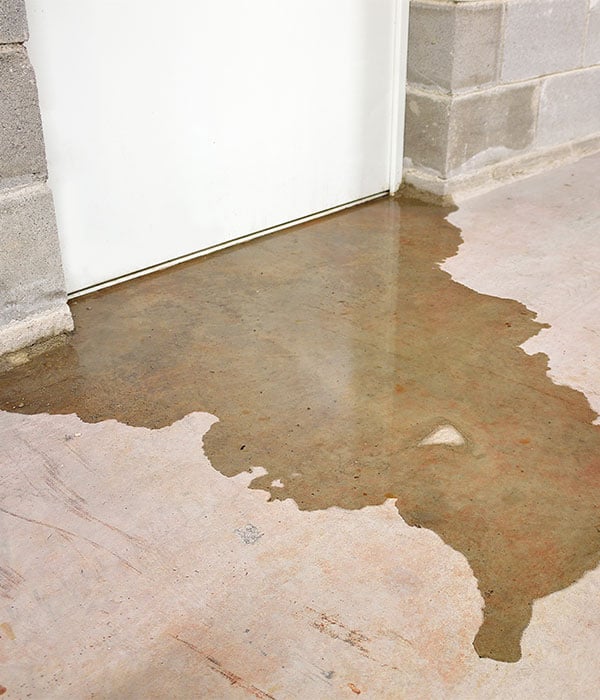Basement Flooding Repair
Keep your basement safe and dry!
If you are lucky enough to have a basement in Greenville, you’ve got a prime area for extra storage, a game room, a home gym, a man cave (or a ma’am cave)—all sorts of possibilities.
Unfortunately, basements can also invite a host of plumbing problems. While Greenville weather is generally unaffected by extreme weather such as hurricanes and tornadoes, we do get severe thunderstorms and the occasional flash flood that can wreak havoc on a poorly prepared basement.
What causes basement flooding?
When extreme weather does hit, why do some basements flood while others fare just fine? Here are some potential factors:

Location
Concrete cracks
Pipe leaks
Preventing basement flooding
- Waterproof your basement. Your builder should have insulated your basement with waterproof materials and included a drain system. If your house is older or was built quickly, the waterproofing may fail over time. To prevent issues, you may be able apply an epoxy coating over your concrete. For more comprehensive basement waterproofing, you’ll need to call in a contractor.
- Check for blocked gutters. Since they’re above eye level, we often don’t think about the leaves and debris that collect in our gutters. If the gutter becomes blocked, it can no longer channel water properly—and all that rainwater might just spill down an exterior wall and seep into the basement.
- Redirect water. The next time you have a steady rain, observe which way the water flows. If streams are heading right for the foundation of your house, you’ll want to find a way to redirect the water. This could be a relatively simple task, such as changing the direction downspouts face, or it could be a more involved project that requires help from a professional.
- Install a sump pump. If you know your basement is prone to flooding, install a sump pump to send excess water into a storm drain. Make sure you check the pump at least once a year to make sure it doesn’t fail you when you need it.
- Regularly check for leaks. If you ever notice discoloration in the walls or ceiling, investigate it right away. It may indicate where a pipe has broken and water is seeping through.
What to do when your basement floods
- First, shut off the power! You don’t want to run the risk of electric shock with all that water. If your house runs on gas heating, shut that off too. In the case of a pipe leak, turn off the water. If a good deal of water is gushing from a pipe (or you suspect that’s the case because it’s sunny out), be sure to turn your water off right away.
- Don’t touch electrical appliances! Even with the power off, these items may still be dangerous. When your basement is dried out, have a licensed electrician come in and evaluate their safety—but don’t move them in the meantime!
- Call a plumber. We can help you figure out the next steps or determine whether there is more damage than meets the eye.
- Wear rubber boots. Be sure to protect your skin, since the water could be contaminated by lawn fertilizer, sewage, or something that’s leaked into the water from your belongings. Don’t step into deep water before you have it checked out, and please don’t step in if you suspect any reason there could be a risk of electric shock!
- Remove any standing water. You can use a mop and a bucket, but for a large volume of water, your best bet is going to be a water vacuum or a sump pump.
- Salvage what you can. Get furniture, clothes, books, toys, exercise equipment, or anything other non-electrical items out of the damp basement and somewhere they can dry. If your homeowner’s or renter’s insurance covers your belongings, make a list of flood-damaged items and take pictures.
Ken’s Plumbing is here when you need us.
We hope for your sake we never have to take this kind of call, but if your Greenville basement is flooded, call Ken’s right away—we’re available 24/7. We can help you asses any hidden dangers and will come up with a game plan for removing the water safely and with as little further damage to your property as possible. Call us at (864) 242-5511, or schedule service with us online..

